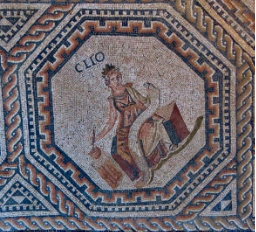EUPSA History
Thoughts on the value of history
All people have a sense of the past; however, they tend to use it to reinforce their own beliefs and sense of identity. As human memory, collective or social can be faulty, distorted by factors such as tradition or nostalgia, a more disciplined approach towards the past characterizes an awareness of objective history. The PAST has to be studied on its own terms, ‘as it actually was’.
Historians have different approaches to the value of history:
- Some see history as a study in itself, which needs no wider justification.
- Some see it in terms of the inexorable march across time of great forces, human or even divine, which explain both how we got to where we are and where we might be heading.
- Some deny that history has any lessons for us at all.
In my opinion history should attempt to explain the past in response to present-day concerns and questions. History can certainly allow us to experience situations and even face alternatives that we would not otherwise encounter. It could serve a useful purpose, sometimes revealing that aspects of modern life are not as old, or as new, as we have assumed.
But how can we learn any useful lessons from history – especially for the future – when so much depends on the details of the historical context? And if history does not repeat itself, what sort of a guide can it provide for the present?
— Zacharias Zachariou

“When the past no longer illuminates the future, the spirit walks in darkness.”
— Alexis de Tocqueville (1805 -1859)
Clio, one of the nine muses, is considered the proclaimer, glorifier and celebrator of history.
Floor mosaic ca. 240 AD, National Museum of History and Art, Luxembourg
EUPSA Founding
The old EUPSA
In October 1972 thoughts for a European Union of Paediatric Surgical Associations (EUPSA).
EUPSA met for the first time in Rotterdam in February 1973 with representatives of 14 western-European nations. As its name suggests, EUPSA was not a scientific society but the Union of European National Associations of Pediatric Surgery with the aim of the following professional and educational issues:
- Support and co-ordination of the practice of Pediatric Surgery in each country.
- Promotion for its recognition as a surgical specialty.
- Unification of training by coordinating nationally recognized hospitals and training programs as well as laying down criteria for training.
- Promoting the exchange of trainees between member countries.
Five years later in 1978 EUPSA consisted of 17 member countries: Austria, Belgium, Denmark, Finland, France, Germany, Great Britain, Greece, Ireland, Italy, Luxemburg, Netherlands, Norway, Portugal, Spain, Sweden, Switzerland
Already before the formal foundation of EUPSA in 1972 questionnaires were sent to all future members asking about the state of Paediatric Surgical practice in their countries. After five years (in October 1977) the member associations again filled in a questionnaire; the answers were compared with their earlier ones to see whether any progress had been made towards fulfilling EUPSA’s aims.
The results were published in the British Medical Journal by Prof, Paul Peter Rickham under the title:
“Paediatric surgery in Europe: the first five years of EUPSA” (British Medical Journal, 1978, 1, 1262-1)
The new EUPSA
The history of the European Pediatric Surgeons’ Association (EUPSA) goes back to 1995 when the former Organization called European Pediatric Surgical Associations decided to organize the 1st European Congress in Pediatric Surgery. The congress was organized by Prof. Michael Hollwarth in Graz (1995) and due to its great success, it was decided to have a similar European Meeting every second year. The 2nd congress was organized in Madrid (1997) by Prof. Juan Tovar, the 3rd in Brussels (1999) by Prof. Marc Henri De Laet and the 4th in Budapest (2001) by Prof. Andrew Pinter.
In 2002 Prof. Michael Hollwarth was elected as President of the “Old EUPSA” and proposed on the occasion of the 5th European Congress in Tours (2003), organized by Prof. Yves Aigrains the foundation of the “New EUPSA” which would be an Association of individual Pediatric Surgeons instead of National Associations. Therefore, the acronym EUPSA remained the same, but this was now a formal Association with individual members. Due to the success of the previous congresses, it was decided to have annual meetings.
EUPSA has become one of the largest Paediatric Surgical Association of individuals worldwide with the main aims:
- Promote high standards of surgical care for neonatal, pediatric and adolescent patients throughout Europe
- Support research, education, collaboration and training in Pediatric Surgery



